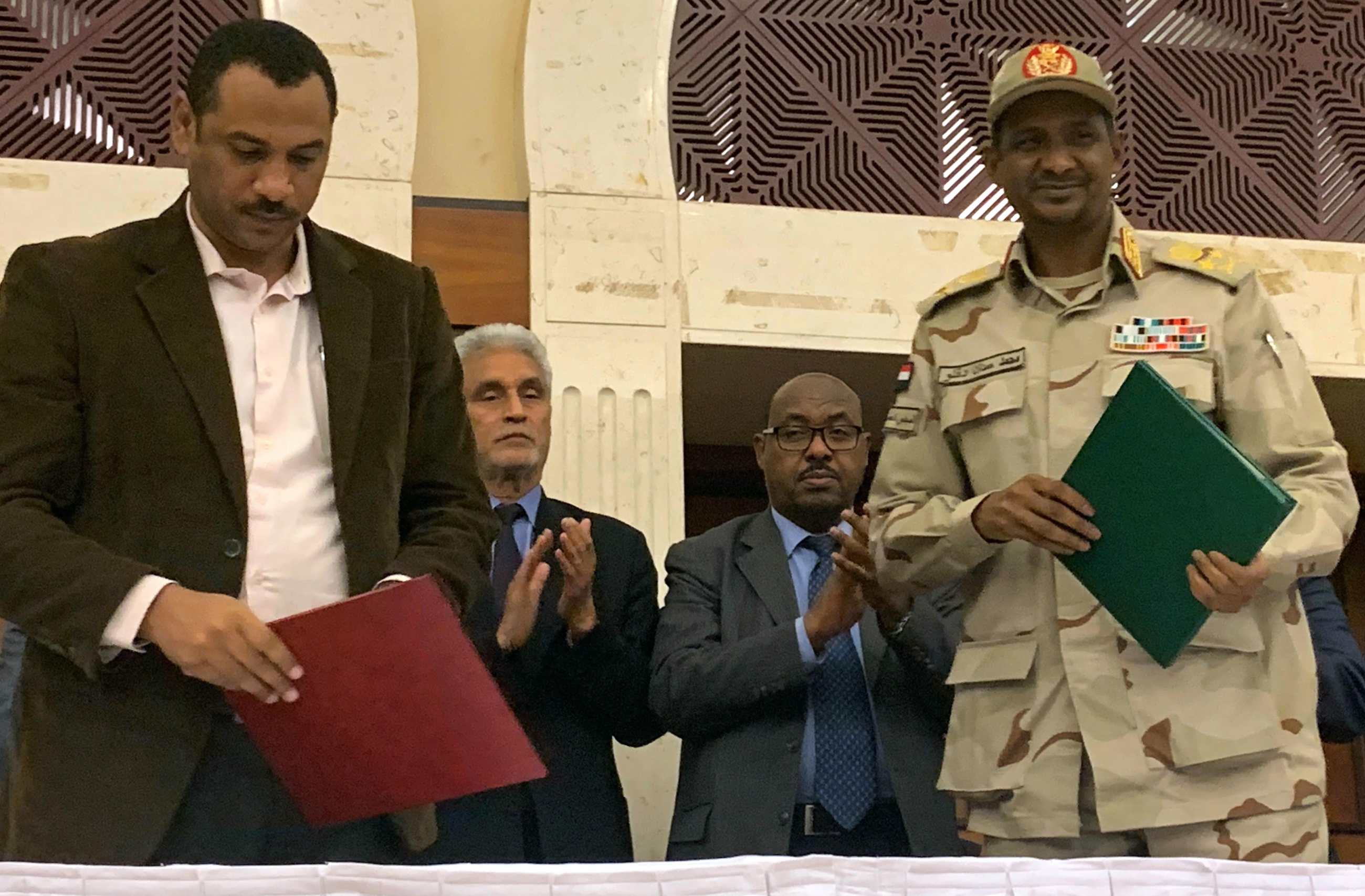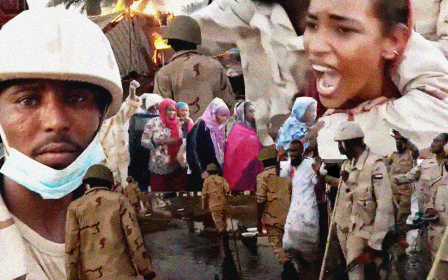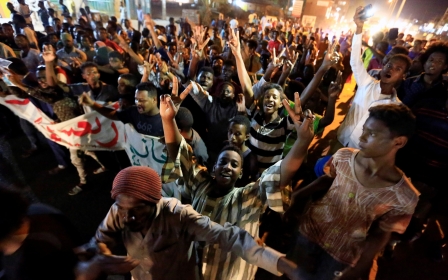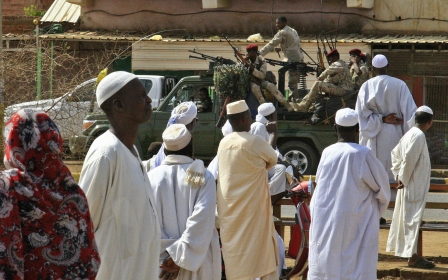Sudan's rebels, factions reject opposition agreement with military council

Sudanese rebel groups and leftists factions have rejected a political agreement signed on Wednesday with the country's military council, intended to pave the pay to a power-sharing deal and eventually civilian rule.
The document was signed after long talks through Tuesday night and though it does not amount to a finalised power-sharing deal, various elements of the opposition have raised concerns that it does not deliver on the demands of demonstrators since president Omar al-Bashir was deposed in April.
Leftist parties from within the Forces of Freedom and Change umbrella that the agreement said they were not involved in the overnight talks.
“We reject this agreement because we have a lot of reservations about the domination of the security organs during the transitional period and the wide powers granted to the military council,” said their representative Siddig Faroug.

The deputy chief of the ruling military council Mohammed Hamdan Dagalo, who signed the deal on the council's behalf, told AFP news agency the agreement was a "historic moment" for Sudan.
Ibrahim al-Amin, a key protest leader, said "today, we completed the political declaration".
"For the constitutional document we will resume talks on Friday," he told AFP.
The landmark power-sharing deal, which was agreed in principle on 5 July, has been brokered by African Union and Ethiopian mediators after intense negotiations between the protest umbrella group and ruling generals.
Members of the FFC, including the Sudanese Professionals Association who have spearheaded protests since December, have raised concerns about several elements of the constitutional agreement, including the military's request for immunity for violence used against protesters.
A coalition of rebel groups, the Sudanese Revolutionary Front, held a press conference in Addis Ababa on Wednesday afternoon where they also warned the agreement failed to deliver on the FFC's founding principles to shift the power balance away from a Khartoum elite.
"This agreement is repeating the same policies of the centre of Sudan against the rural and marginalized areas, neglected since the independence of Sudan in 1956," said SRF head Malik Agar.
They said the agreement neglected the peace-building process in a country where Sudan's armed forces have been fighting decades-long wars with minority communities on the peripheries.
Governing body
The overall accord stipulates that a new transitional civilian-military ruling body be established, in a bid to end the country's months-long political crisis.
The governing body will have a total of six civilians and five military representatives.
The six civilians will include five from the umbrella protest movement, the Alliance for Freedom and Change.
A general will head the ruling body during the first 21 months of the transition, followed by a civilian for the remaining 18 months, according to the framework agreement.
That body is to oversee the formation of a transitional civilian administration that will govern for just over three years, after which elections would be held.
Ethiopian mediator Mahmoud Dirir said Sudan needed to overcome poverty and called for the country to be taken off a US list of states that support terrorism.
Protest camp stormed
The breakthrough accord came after a political deadlock that has gripped Sudan since the generals ousted Bashir in a palace coup in April, on the back of months of nationwide mass protests against his iron-fisted three-decade rule.
Tensions climaxed on 3 June when armed men in military fatigues stormed a longstanding protest camp in Khartoum, shooting and beating crowds of demonstrators in a pre-dawn raid.
More than 100 people were killed, dozens raped and hundreds wounded, triggering international outrage, although the generals insisted they did not order the violent dispersal of protesters.
Talks to fine tune the details of the deal since 5 July had been postponed several times at the request of protest leaders.
Middle East Eye delivers independent and unrivalled coverage and analysis of the Middle East, North Africa and beyond. To learn more about republishing this content and the associated fees, please fill out this form. More about MEE can be found here.




